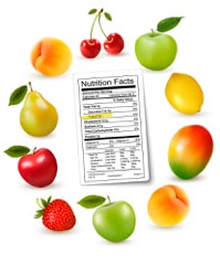Food Allergy or Food Intolerance?

There is often confusion over the difference between food allergies and food intolerance, especially in children, and so they are often referred to together as ‘food sensitivity.’ However, there are some known differences between the two.
A ‘true’ food allergy is when the body mistakenly perceives a food eaten as a ‘harmful foreign invader,’ and activates an inappropriate immune reaction. This causes various, sometimes very serious symptoms, such as swelling of mouth, face and throat, hives or rash, wheezing, fever, vomiting, colic and eczema. If your child has a true food allergy, for example, to eggs, milk or nuts, this is likely to have been diagnosed by your GP, as the speed of the reaction between symptoms and the culprit food usually makes the connection obvious. However, when the symptoms take longer to flare up (eg with eczema), the connection to a particular food may be less obvious.
Unlike a food allergy, a food intolerance does not directly trigger an immune response. Symptoms can include bloating, diarrhoea or constipation, tummy aches or colic in babies, bedwetting, headaches, constant running nose, glue ear and rash or itchy skin and are more likely to be caused by the body not being able to properly process the offending food. A food intolerance often occurs when there has been an excess of one food combined with a defect in its digestion or absorption, for instance, in lactose intolerance. So whilst a small amount of milk added to cakes may not provoke symptoms, a whole glass of milk may cause digestive problems.

What causes food sensitivities?
In food allergy, the body mistakenly produces IgE antibodies in response to everyday foods, which, when eaten, trigger the immune system to mount an attack which results in symptoms. The question of why the body has made this mistake is not entirely understood, though allergies often run in families (known as atopy). Instances of food allergy, especially in children, has risen sharply in the last few decades leading some scientists to conclude that changes in the way we eat, less babies being breastfed, more chemicals in the environment, overuse of antibiotics and our children being ‘too clean,’ are all influencing how well our children’s immune systems develop and function.
In food intolerance, overloading the system with too much of one food, for instance, wheat (cereal or toast for breakfast, sandwich for lunch, pasta for dinner), is thought to be a contributory factor, especially if the digestive system is not as healthy as it could be, with low good bacteria or digestive enzymes. So it is important to keep the diet varied.
If you suspect you or your child is suffering with food sensitivities, try keeping a food diary to log reactions. Consider seeking professional help from an accredited Nutritional Therapist, especially before excluding any foods from a child’s diet, as it’s important to ensure they still obtain all nutrients they need from other sources. If you would like to book an appointment or a free 10 minute call to discuss if I can help, click here.
In food allergy, the body mistakenly produces IgE antibodies in response to everyday foods, which, when eaten, trigger the immune system to mount an attack which results in symptoms. The question of why the body has made this mistake is not entirely understood, though allergies often run in families (known as atopy). Instances of food allergy, especially in children, has risen sharply in the last few decades leading some scientists to conclude that changes in the way we eat, less babies being breastfed, more chemicals in the environment, overuse of antibiotics and our children being ‘too clean,’ are all influencing how well our children’s immune systems develop and function.
In food intolerance, overloading the system with too much of one food, for instance, wheat (cereal or toast for breakfast, sandwich for lunch, pasta for dinner), is thought to be a contributory factor, especially if the digestive system is not as healthy as it could be, with low good bacteria or digestive enzymes. So it is important to keep the diet varied.
If you suspect you or your child is suffering with food sensitivities, try keeping a food diary to log reactions. Consider seeking professional help from an accredited Nutritional Therapist, especially before excluding any foods from a child’s diet, as it’s important to ensure they still obtain all nutrients they need from other sources. If you would like to book an appointment or a free 10 minute call to discuss if I can help, click here.
